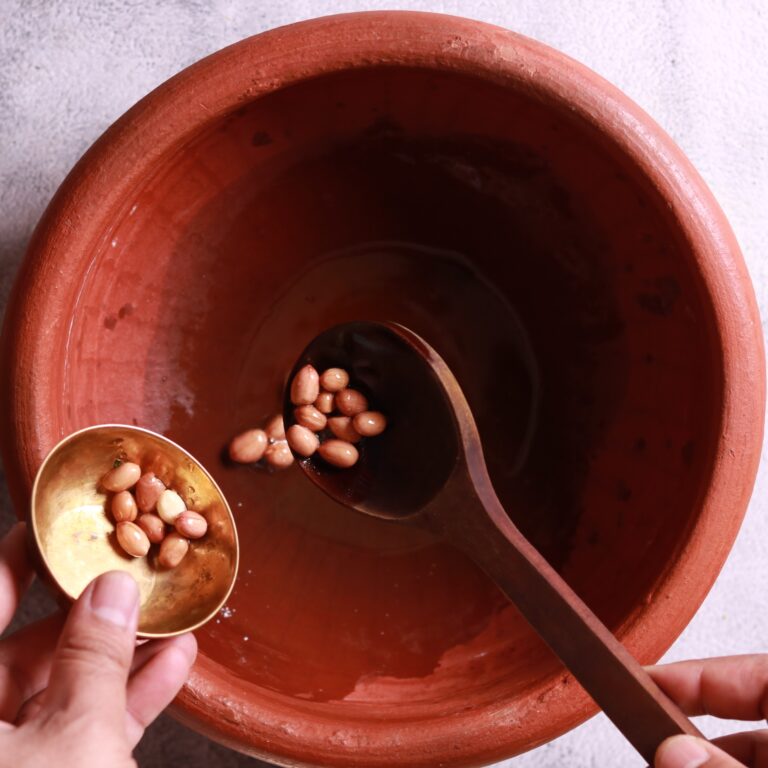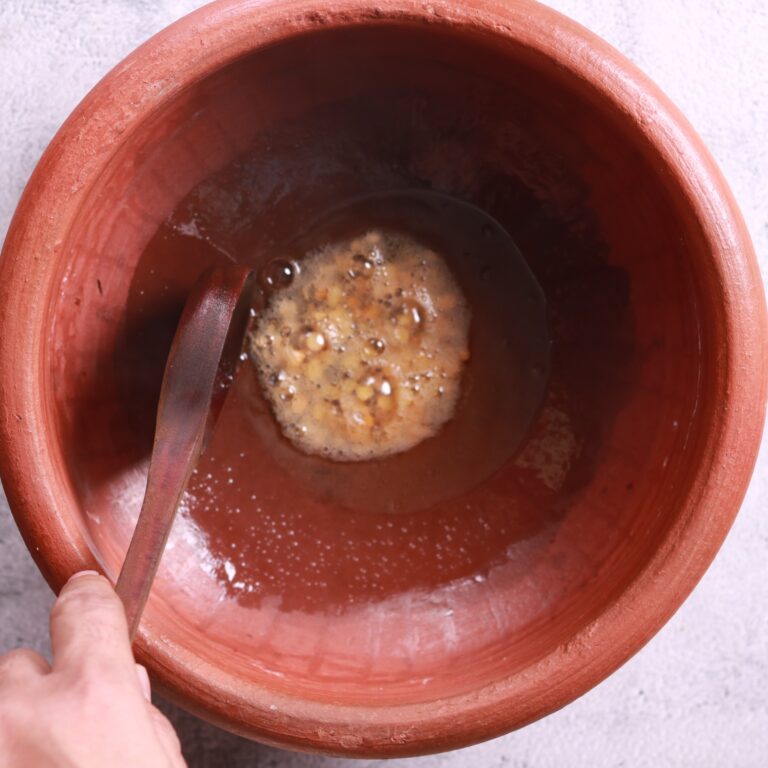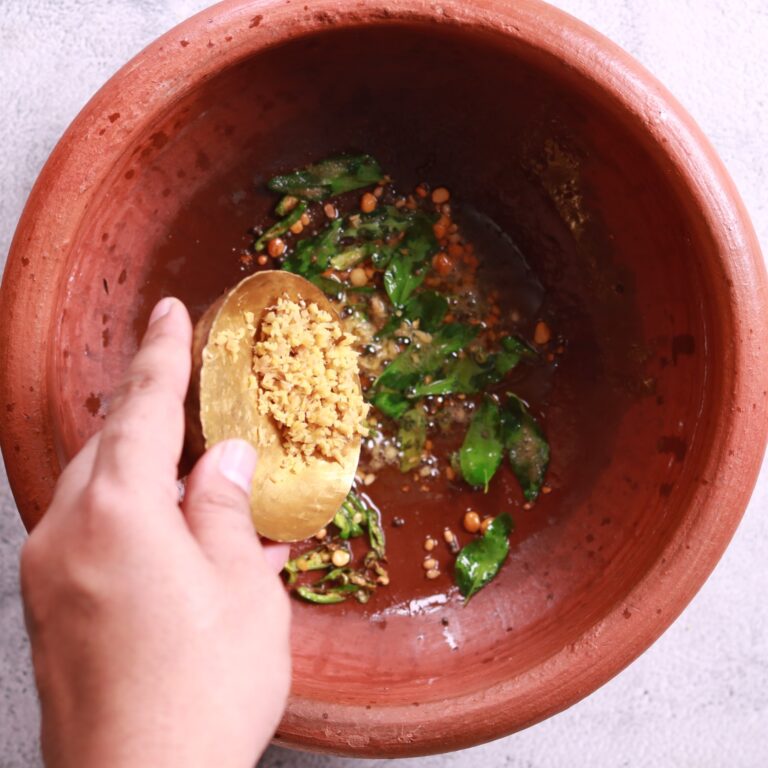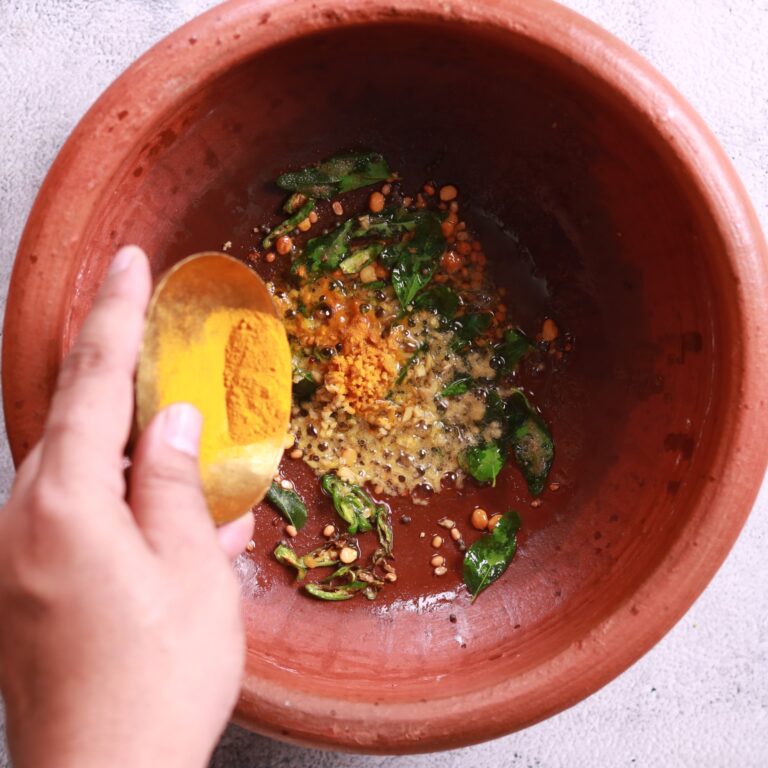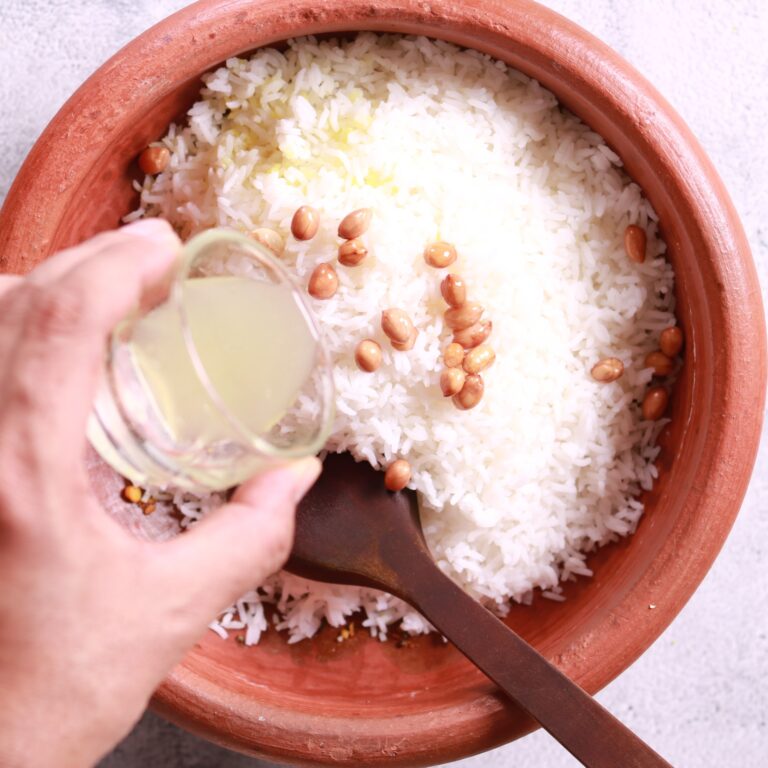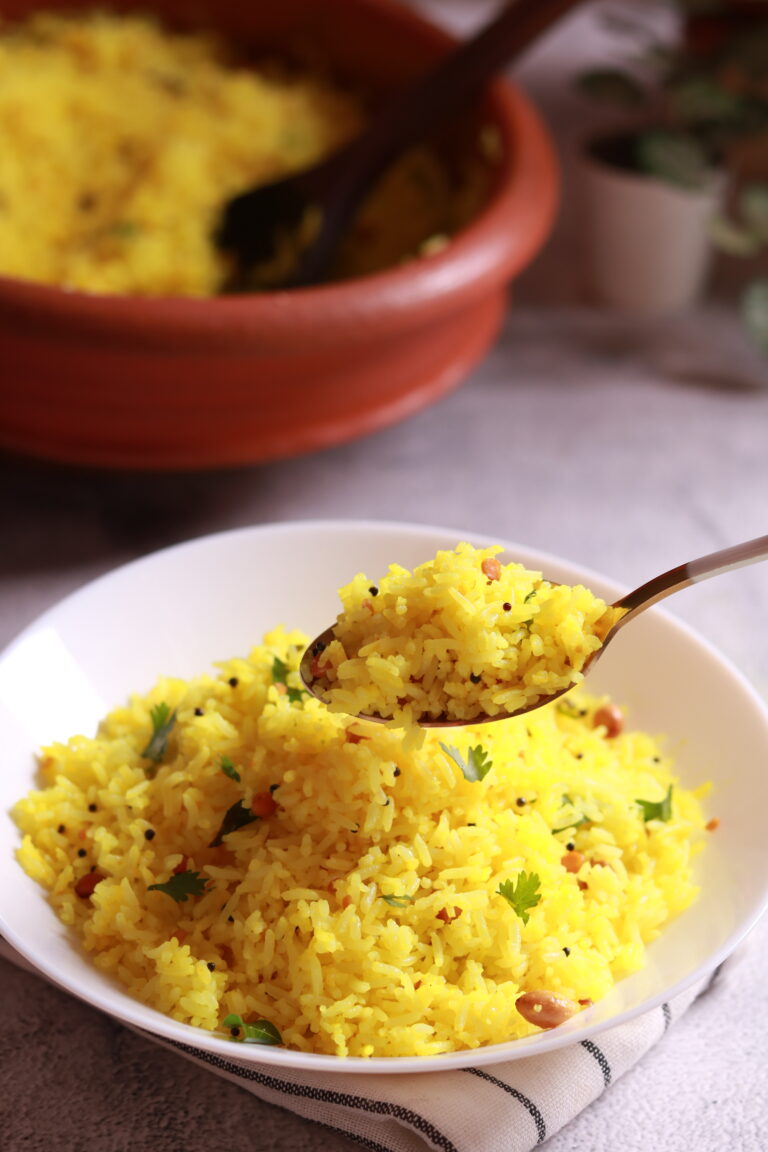Lemon rice, known as “Chitranna” in Karnataka, is a quintessential South Indian dish that has captured the hearts of food lovers everywhere. This vibrant yellow rice dish, infused with the tangy flavour of lemon and aromatic spices, signifies a rich cultural symbol. Its simplicity and versatility make it a staple in many households across South India.
The origins of lemon rice can be traced back to ancient India. Historical texts like Manasollasa (1130 CE) and Pakadarpana (1200 CE) mention a similar dish called Chitrapaka. Over centuries, this dish evolved into what we now know as Chitranna or lemon rice. This simple dish has inspired many flavours and fusions in various dishes.
Why I LOVE… This Recipe!

I absolutely adore turmeric rice! It’s like sunshine on a plate. The vibrant YELLOW colour instantly lifts my mood. Plus, it’s super EASY to whip up. The earthy flavour of turmeric pairs perfectly with aromatic spices, creating a comforting and exciting taste. It’s not just delicious but also HEALTHY – turmeric is a powerhouse of antioxidants. Whether I’m feeling under the weather or just need a quick meal, turmeric rice never disappoints. It’s my go-to COMFORT FOOD that always hits the spot!
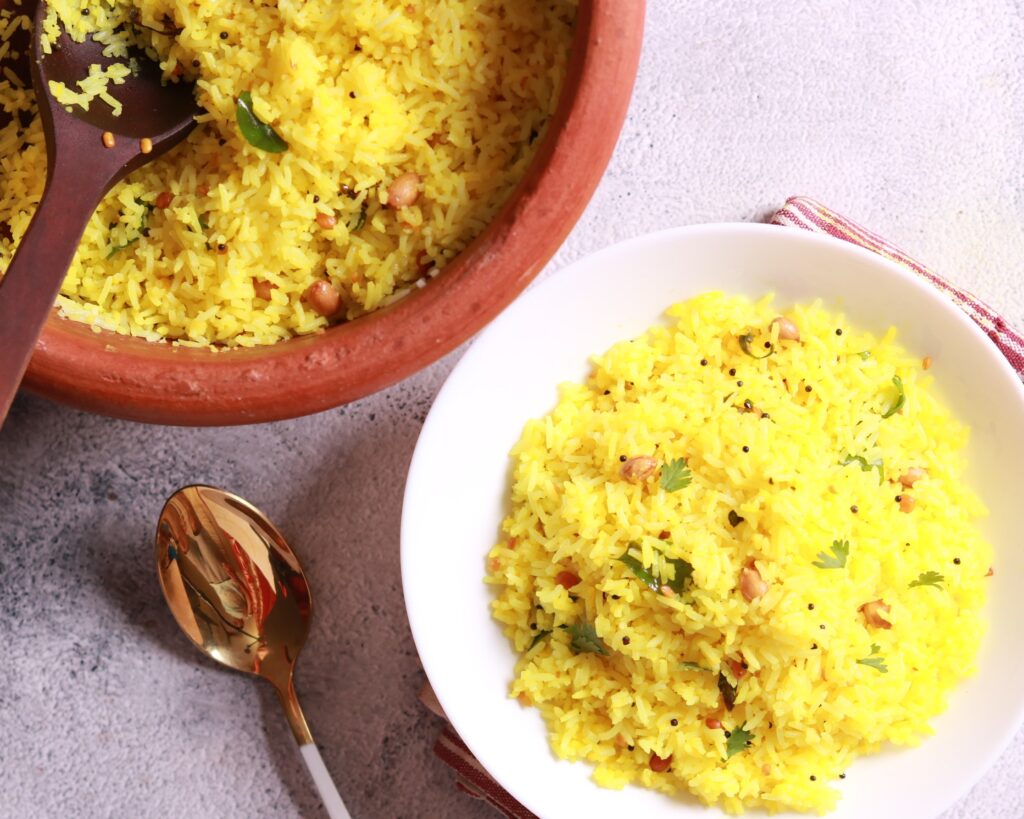
The Role of Lemon in Indian Culture
Lemons hold a special place in Indian culture beyond their culinary uses. In Hindu traditions, lemons are considered sacred and are often used in rituals. For instance, fresh lemon juice is squeezed over deity symbols as an act of purification in temples. This practice symbolizes cleansing and positivity.
Genetic studies suggest that lemons likely originated in Southeastern Asia and Northeastern India before spreading worldwide. Their year-round availability in India has made them an integral part of everyday cooking and traditional medicine.
Why Lemon Rice Stands Out
Lemon rice isn’t just another dish; it’s a celebration of flavours. Here’s why it’s so special:
- Vibrant Appearance: The golden-yellow hue of turmeric makes it visually appealing.
- Tangy Flavor: The zesty lemon juice adds a refreshing tanginess.
- Aromatic Spices: Curry leaves, mustard seeds, and chilies elevate it’s aroma.
- Crunchy Textures: Peanuts or cashews add a delightful crunch to every bite.
This combination of flavours and textures makes lemon rice a favourite for all occasions, be it a simple lunch at home or a festive gathering.
Ingredients Required to Make Lemon Rice
- Rice: Forms the base of the dish, providing carbohydrates and energy. Traditionally, Kolam rice is used.
- Lemon juice: Adds tanginess and vitamin C, preserving its health benefits when added after cooking.
- Turmeric powder: Gives the characteristic yellow colour and offers anti-inflammatory properties.
- Mustard seeds and curry leaves: They provide aromatic flavours typical of South Indian cuisine.
- Peanuts and cashews: Add crunch and nutty flavor, enhancing texture and nutritional value
- Urad dal and chana dal: Contribute to the dish’s protein content and add a crunchy texture.
- Green chilies: These offer a spicy kick and can be adjusted to taste.
- Asafoetida (hing) enhances flavor and aids digestion, but it can be skipped for a gluten-free version.
- Oil: Traditionally, sesame oil is used, but coconut oil can be substituted for a different flavor profile.
Explore More South Indian Rice Recipes
- Tamarind Rice Recipe (Puliyogare Recipe) | टैमरिंड राइस
- South Indian Coriander Rice Recipe (Kothamalli Sadam) | कोथमल्ली सादम
- Tomato Rice Recipe (Thakkali Sadam Recipe)
- Coconut Rice Recipe(Thengai Sadam): Simple and Delicious!
- Curd Rice Elevated: A Simple Millet-Infused Recipe
Lemon Rice : Image Gallery








Health Benefits of Lemon Rice
Lemon rice is not only delicious but also packed with health benefits:
- Rich in Vitamin C: Lemons are an excellent source of vitamin C, which boosts immunity and promotes healthy skin.
- Supports Digestion: The citric acid in lemons aids digestion by stimulating the production of digestive enzymes.
- Anti-inflammatory Properties: Turmeric, a key ingredient, has powerful anti-inflammatory effects.
- Promotes Detoxification: Lemons help cleanse the liver and flush out toxins from the body.
- Balances Iron Absorption: Vitamin C enhances iron absorption from plant-based foods.
These health benefits make lemon rice a treat for your taste buds and a nourishing addition to your diet.
Variations of Lemon Rice
Lemon rice is versatile and can be customized to suit different tastes. Here are some popular variations:
- Nimbehannu Chitranna: The classic version is made with turmeric, lemon juice, and basic spices.
- Mavinakayi Chitranna: A tangy twist using raw mango instead of lemon.
- Eerulli Chitranna: An onion-based variation for added sweetness and depth.
- Kayi-Sasive Chitranna: This incorporates grated coconut and mustard seeds for a richer flavour.
- Heralekayi Chitranna: Made with citron lime for an intense citrusy kick.
These variations showcase the adaptability of this humble dish while retaining its essence.
Pairing Lemon Rice with Sides
Lemon rice pairs beautifully with a variety of accompaniments that complement its tangy flavour:
- Raita: Cooling cucumber or mint raita balances the spiciness.
- Pickles: Add an extra layer of tanginess to the meal.
- Papadums: Crispy papadums provide a satisfying crunch.
- Vegetable Curries: Mild curries like potato or coconut-based gravies enhance the meal.
These pairings make lemon rice suitable for any occasion—from casual lunches to elaborate feasts.
Ingredients
- 1 cups Raw Kolam rice or 500 gm Cooked Kolam rice
- 3 cups water
- 2 tablespoons vegetable oil
- 1/2 teaspoon mustard seeds
- 1 teaspoons urad dal split black gram
- 1 teaspoons chana dal split chickpeas
- 1 nos sprigs curry leaves
- ¼ teaspoon hing asafoetida
- 1 nos green chilies slit lengthwise
- 1 inch piece ginger finely chopped
- 1 teaspoons turmeric powder
- 1 tablespoon salt
- 1 tablespoons raw peanuts
- 1 Large Juice Lime
Instructions
- Cook the rice: Soak the Rinse the rice until the water runs clear. Soak for 20 minutes and drain the water, In a medium saucepan, heat 5 cups water and combine the rice, Bring to a boil, and cook until the rice is tender, drain the rice. Fluff with a fork and set aside to cool slightly.
Prepare the tempering:
- Toast the peanuts: Add the raw peanuts to the hot oil and fry until golden brown, about 2-3 minutes. Remove with a slotted spoon and set aside.
- Temper the spices: In the same oil, add mustard seeds and let them crackle. Then add urad dal and chana dal, frying until they turn light golden, about 30-45 seconds.
- Add aromatics: Toss in the curry leaves, slit green chilies, and chopped ginger. Sauté for about 1 minute until fragrant and the ginger starts to soften.
- Incorporate spices: Sprinkle in the hing and turmeric powder. Stir quickly to combine with the oil and prevent burning, cooking for about 30 seconds.
- Incorporate Rice, Season and finish: Add the cooked rice to the vessel. Squeeze the juice of two limes over the rice and add the toasted peanuts. Mix everything together carefully to avoid breaking the rice grains.
- Serve: Transfer the lemon rice to a serving bowl and enjoy hot.
Notes
Storage: This lemon rice can be refrigerated for up to 3 days. Reheat in the microwave or on the stovetop with a splash of water to refresh the texture.
Substitutions: For a nuttier version, try cashews or a mix of peanuts and cashews. You can use ghee instead of vegetable oil for a richer flavor.
Serving suggestion: Pair with a cool cucumber raita, crispy papadum, or a simple vegetable curry for a complete and balanced meal.
Equipment needed: Large skillet or kadai, medium saucepan with lid, and a slotted spoon.
Spice level: Adjust the number of green chilies to your preferred level of heat.
This double-tempered lemon rice offers an explosion of flavors and textures in every bite. The extra spices and peanuts create a more robust and satisfying dish that can easily stand on its own as a meal. Enjoy the enhanced aroma and crunch in this amped-up version of a classic South Indian favorite!
FAQs About Lemon Rice
- Can I use brown rice instead of white?
Yes! Brown rice adds more fiber and nutrients while retaining the dish’s essence. - How long can I store lemon rice?
It stays fresh in the refrigerator for up to 2 days when stored in an airtight container. - Is lemon rice vegan?
Absolutely! Ensure you use oil instead of ghee if following a vegan diet. - What can I pair with lemon rice?
Raita, pickles, papadums, or mild vegetable curries work wonderfully as sides. - Can I prepare it ahead of time?
Yes! Lemon rice tastes even better after resting as the flavours meld together beautifully. - Are there gluten-free options?
Traditional recipes are naturally gluten-free if no wheat-based ingredients are added during preparation.
Latest posts
-
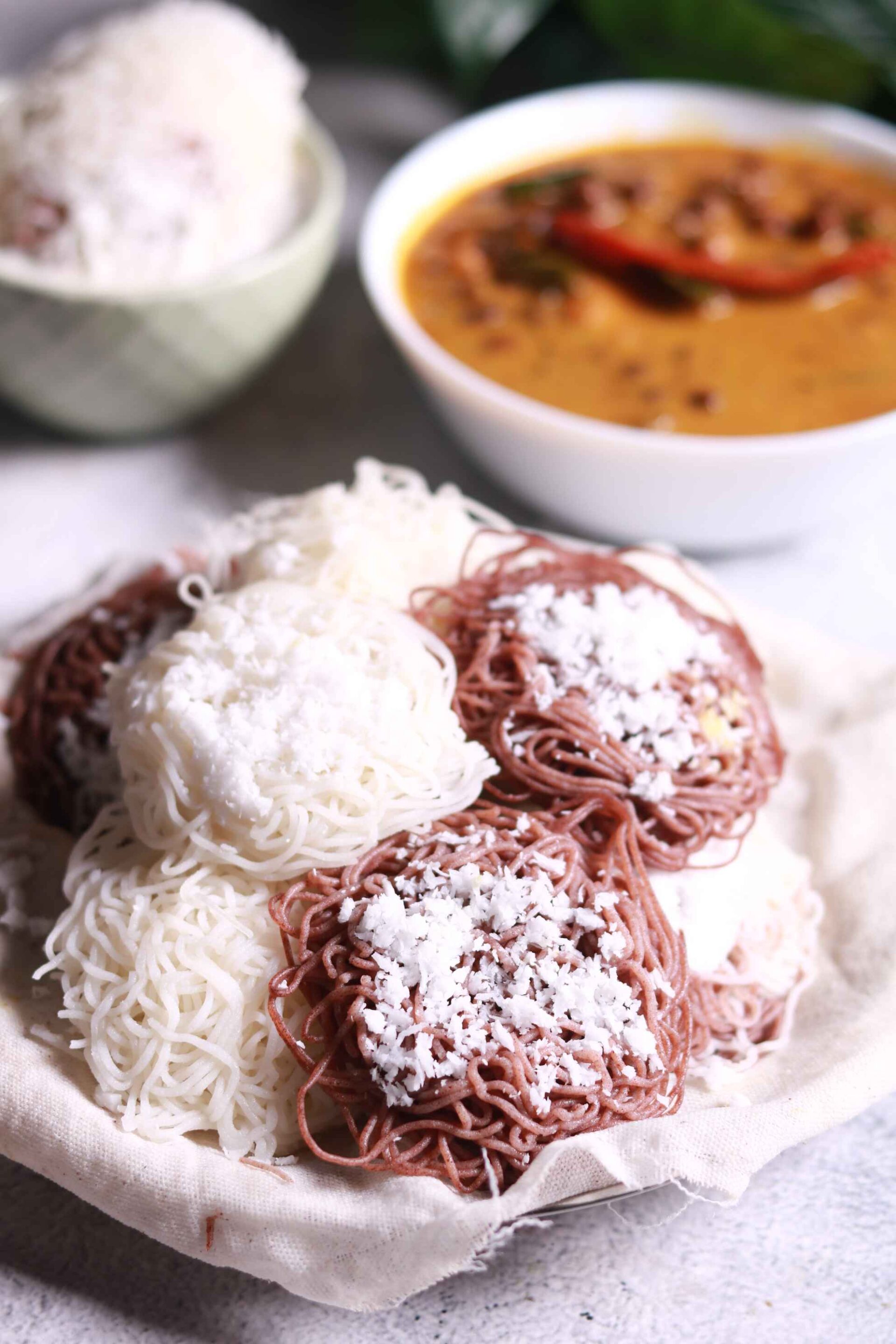
Authentic Idiyappam Recipe: Soft String Hoppers from South India
Authentic Idiyappam- Hey there, if you’ve ever been lucky enough to dig into a plate of fluffy Idiyappam at a South Indian home or restaurant, you know that magic—those delicate rice noodles, steamed to perfection,… Read more
-
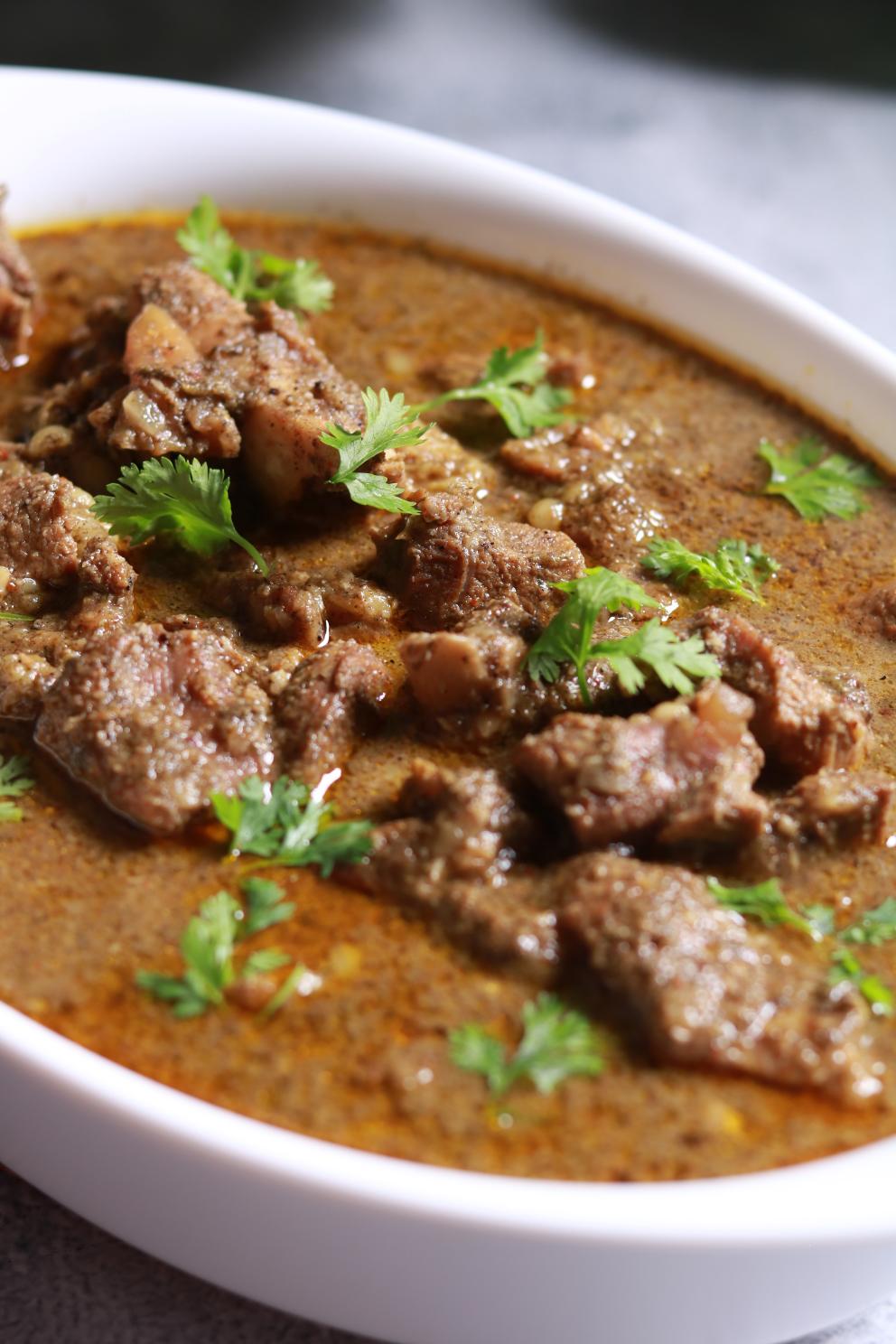
Authentic Kala Mutton Curry (Black Mutton)
Hey there, if you’re craving something rich, smoky, and downright addictive, let’s talk about black mutton curry, or kala mutton as it’s known in Maharashtra. This Maharashtrian gem gets its name from the deep, almost black… Read more
-
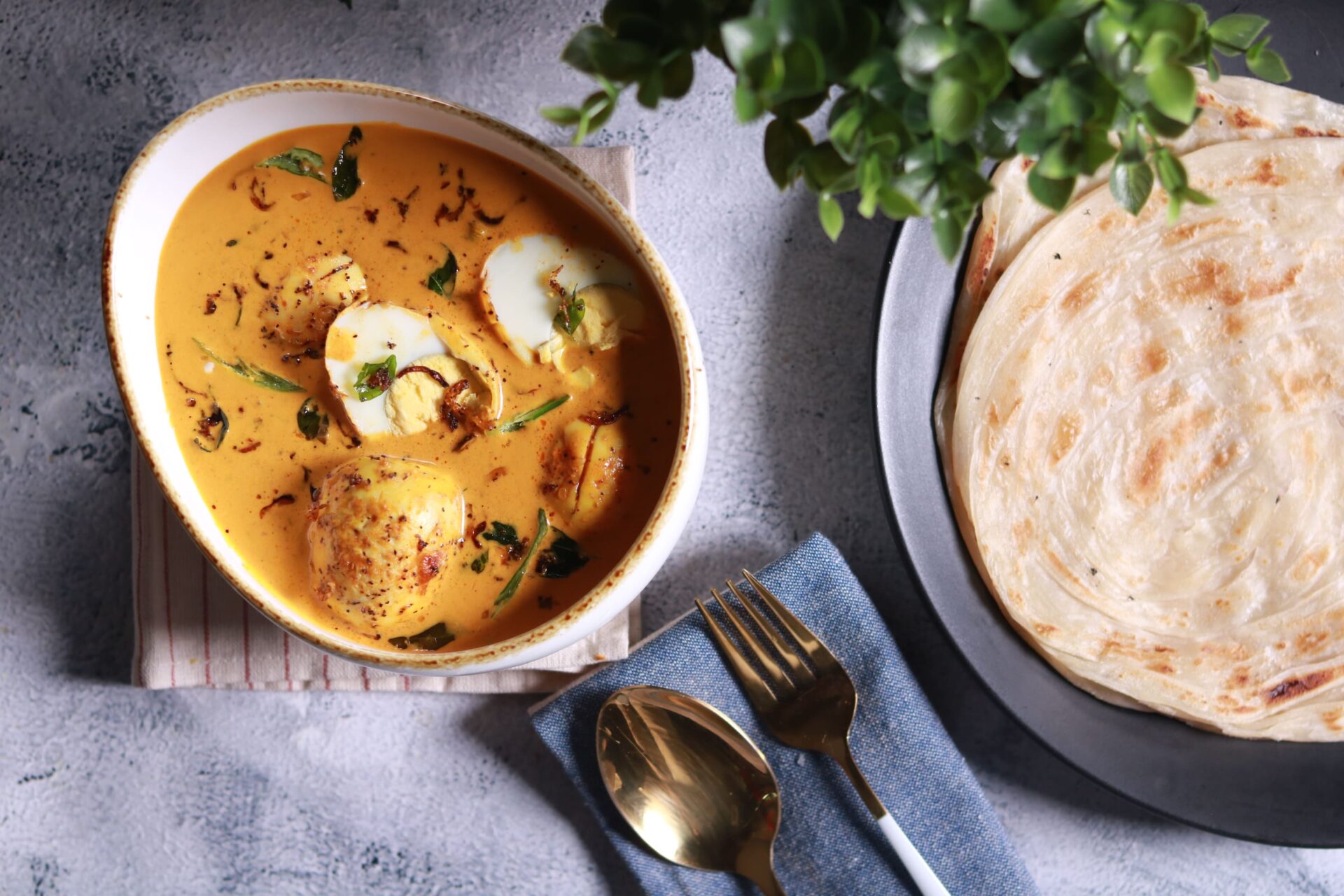
Traditional Kerala Egg Curry with Coconut Milk (Mutta Curry)
If there’s one dish that makes a slow, rainy morning in Kerala feel extra cozy, it’s a Traditional Kerala egg curry with coconut milk, served with soft Paratha or lacy dosa. This is the kind… Read more


